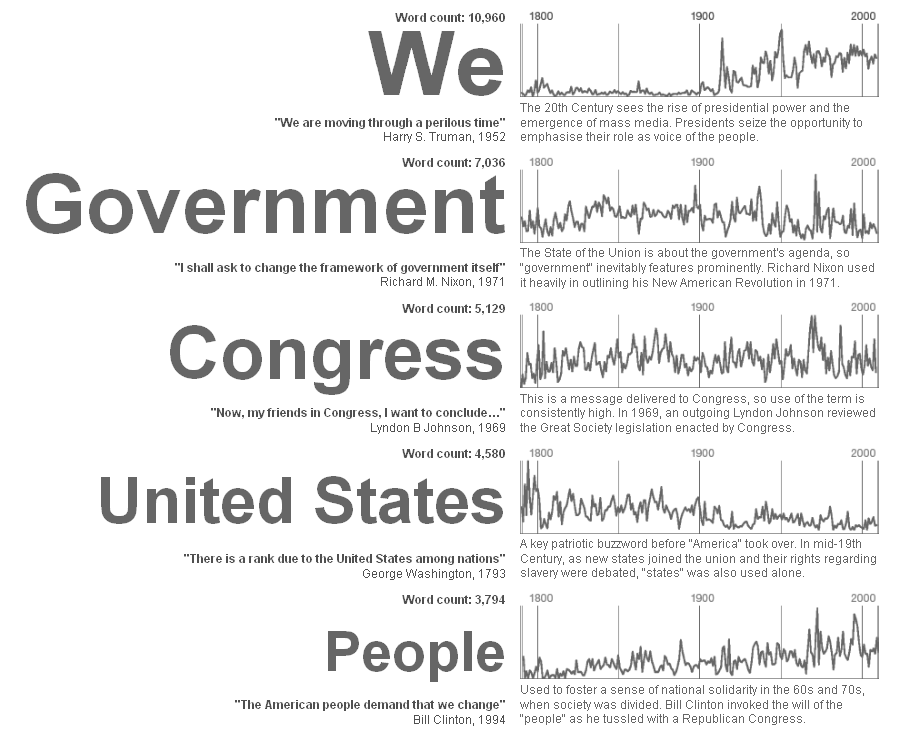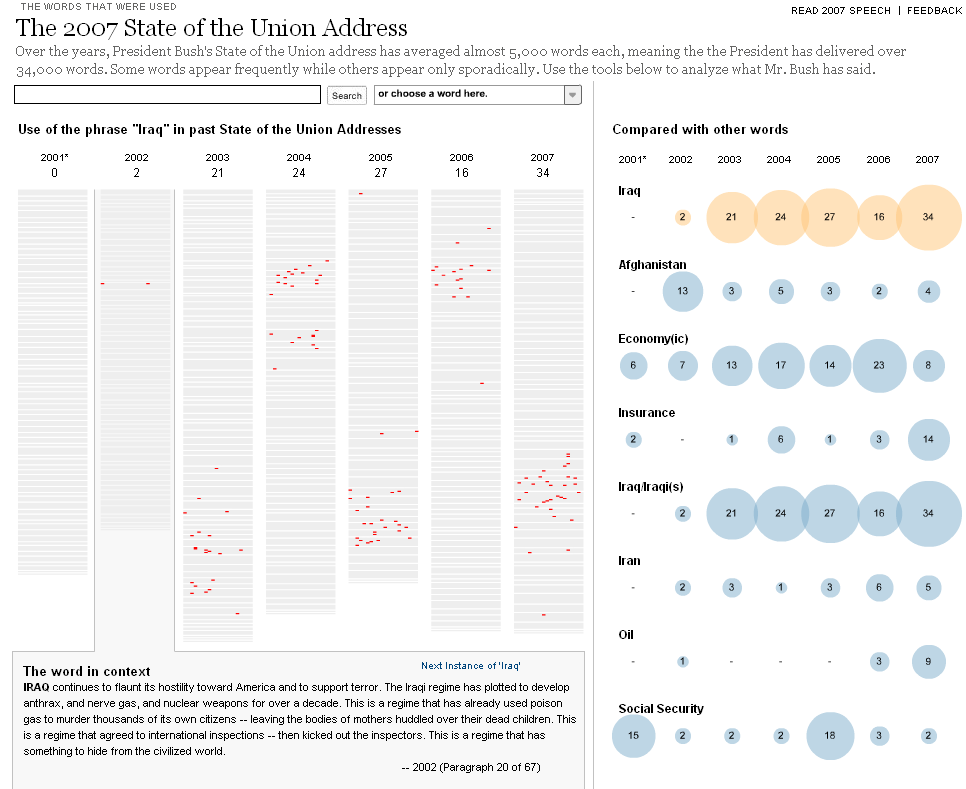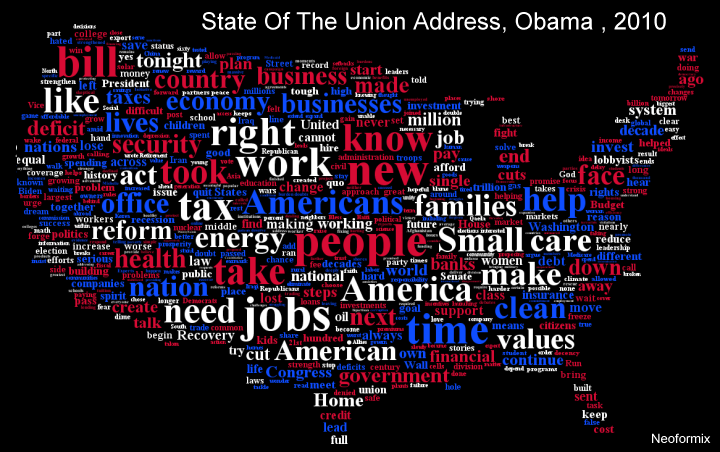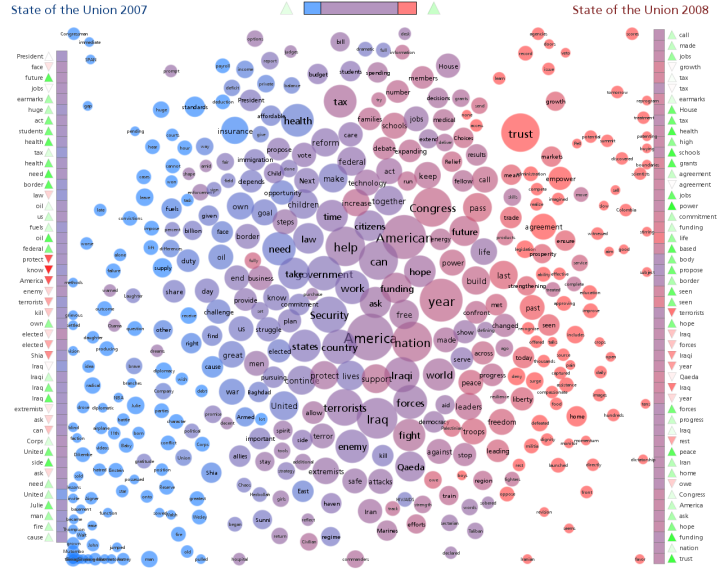In advance of President Obama’s  State of the Union address this evening, the BBC web graphics team has published some analysis of the usage of the 10 most prevalent words and phrases in every address going back to 1790.
State of the Union address this evening, the BBC web graphics team has published some analysis of the usage of the 10 most prevalent words and phrases in every address going back to 1790.

The selection is specifically based on nouns, adjectives and a pro-noun, with the most popular words being We, Government, Congress, United States, People, Country, Public, War, American and World. These words were arrived at following the application of the following criteria:
The most commonly used words are “the” and “of”, followed by “to”, “and”, “in”, “a” and “that”- and so on. The word “we” is the 19th most commonly used word, and “government” the 30th. We have omitted the word “states” (32nd most common, used 6,560 times) because it is mostly paired with “united” (40th most common, used 4,900 times). Other nouns and adjectives omitted include: “year”, “years”, “great”, “time” and “present”.
The result is a very interesting small-multiples display of line graphs showing the pattern of each word’s usage. Accompanying each graph is a sample presidential quote as well as a brief snippet of narrative provided by Professor Iwan Morgan of the Institute for the Study of the Americas, University of London.
You can see more of the BBC interactive graphics gallery here.
Qualitative visualisations of the State of the Union message have been increasingly deployed as technology has provided powerful new tools and methods to present such analysis.
One of the most prominent examples was, unsurprisingly, in the New York Times and provided interactive comparisons between the 2007 address with some of the previous years’.

Another key designer well known for his qualitative work is Jeff Clark of Neoformix. Jeff has produced several variations of analysis on State of the Union text:
Intriguingly, the White House’s website provides notice that web followers of tonight’s address will receive enhanced coverage of the speech with charts, graphs and additional content available. Will be interesting to see what this turns out to be…




